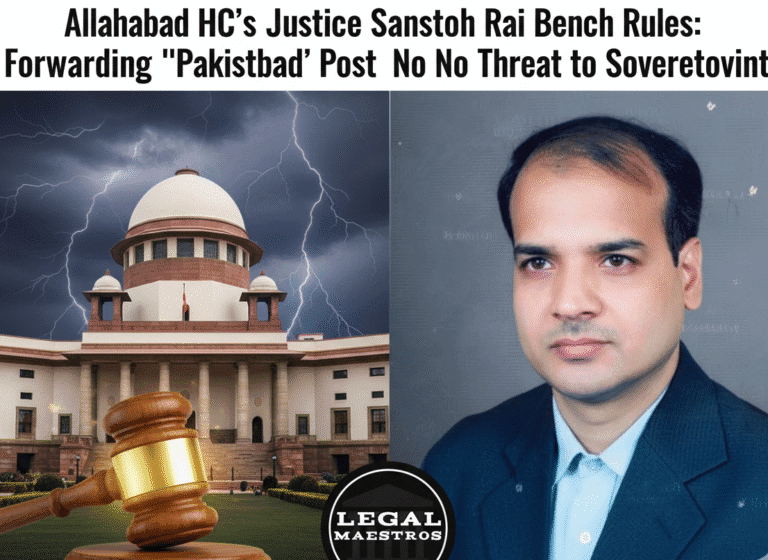
A recent decision pronounced by the Supreme Court of India threw light on regard to stringent conditions to be established by tenants who want protection against eviction under the West Bengal Premises Tenancy Act, 1997 (WBPT Act). The case of Seventh Day Adventist Senior Secondary School v/s Ismat Ahmed and others was based on the necessity of filling timely amounts of rent on deposit as well as the strict provisions of the Limitation Act, 1963. This interpretation provides an understanding of the intent of the Act on Section 7 of the WBPT Act which focuses on ensuring access to the protection of the Act by following the statutory timeline in the legislation.
Case background
The action arose out of an ejectment action that was brought by the landlords of the plaintiffs against the tenant, Seventh Day Adventist Senior Secondary School. The landlords wanted to evict the tenant based on grounds of rent arrears, bona fide need and sub-lettings. The tenant resided in Kolkata, in a tenement base which was rented out for Rs. 1090 a month; a summons was served on the tenant on September 29, 2022. Courts remained closed between September 30, 2022, and October 27, 2022, because of Durga Puja vacation. On November 14, 2022, the tenant submitted under Section 7(1) and Section 7(2) of the WBPT Act, working towards depositing rent and identifying the amount of rent that he was supposed to pay. These applications had been delayed by 17 days and, thus, action to condone the delay under Section 5 of the Limitation Act had also been filed by the tenant.
The Small Causes Court dismissed the claim of the tenant holding that the 30 days were carved out under Section 7(1) of the WBPT Act and as such could not be accelerated by the provisions of Section 5 of the Limitation Act. This decision was supported by the Calcutta High Court and consequently, the tenant appealed to the Supreme Court. The main question before the Supreme Court was whether applications made against Sections 7(1) and 7(2) of the WBPT Act after the stipulated 30 days period without paying a set rent deposit were defendable.
For any queries or to publish an article or post or advertisement on our platform, do call at +91 6377460764 or email us at contact@legalmaestros.com.
The provisions of the West Bengal Premises Tenancy Act
The provisions stated in the WBPT Act section 7 indicate that in which instance a tenant is to be provided with protection against being evicted. Section 7(1) deals with the tenant who must pay or deposit all the rent arrears together with the interest within a month of getting a summons. In case the tenant disagrees with the value of rent he owes, Section 7(2) stipulates that he should deposit the acknowledged amount within the same one-month period and a request for rent determination also has to be filed. The term together employed in this section implies that the application and the deposit must be lodged at the same time.
The cost of such non-compliance is very high. Section 7(3) requires striking out the defense by the tenant against possession that in case he/she has not paid or deposited the required amount after the specified time, or any extended time allowed, the court shall proceed with the hearing of the suit. Section 7(2) of the law also contains a proviso giving a Civil Judge the possibility to grant a singular extension of not more than two months.
Required compliance and constrained discretion
The Supreme Court scrutinized the language of Section 7 in greater detail to find out whether the provisions of Section 7 were mandatory or directory. When the Court saw the use of the word shall in both Sections 7(1) and 7(2) of the reference to the requirement of the tenant of the payment or deposit of rent and the filing of an application the Court stated that the intention of these two sections should be the payment or expenditure of rent and also the filing of an application. The use of shall is a mandate. Conversely, the term may apply in the proviso to Section 7(2) of the extension of time which means that the court will exercise its discretion.
For any queries or to publish an article or post or advertisement on our platform, do call at +91 6377460764 or email us at contact@legalmaestros.com.
The Court found that it is mandatory that the tenant keeps depositing rent and an application is lodged within the first 30 days. This is a very crucial pre-requisite before a tenant utilizes protection against eviction under the Act. The Court explained that the proviso which intertwines with an extension of time does not apply at this early stage. It is made applicable only to the paying of that sum mentioned in the determination order provided by the Civil Judge following initial request and laying down the deposit.







